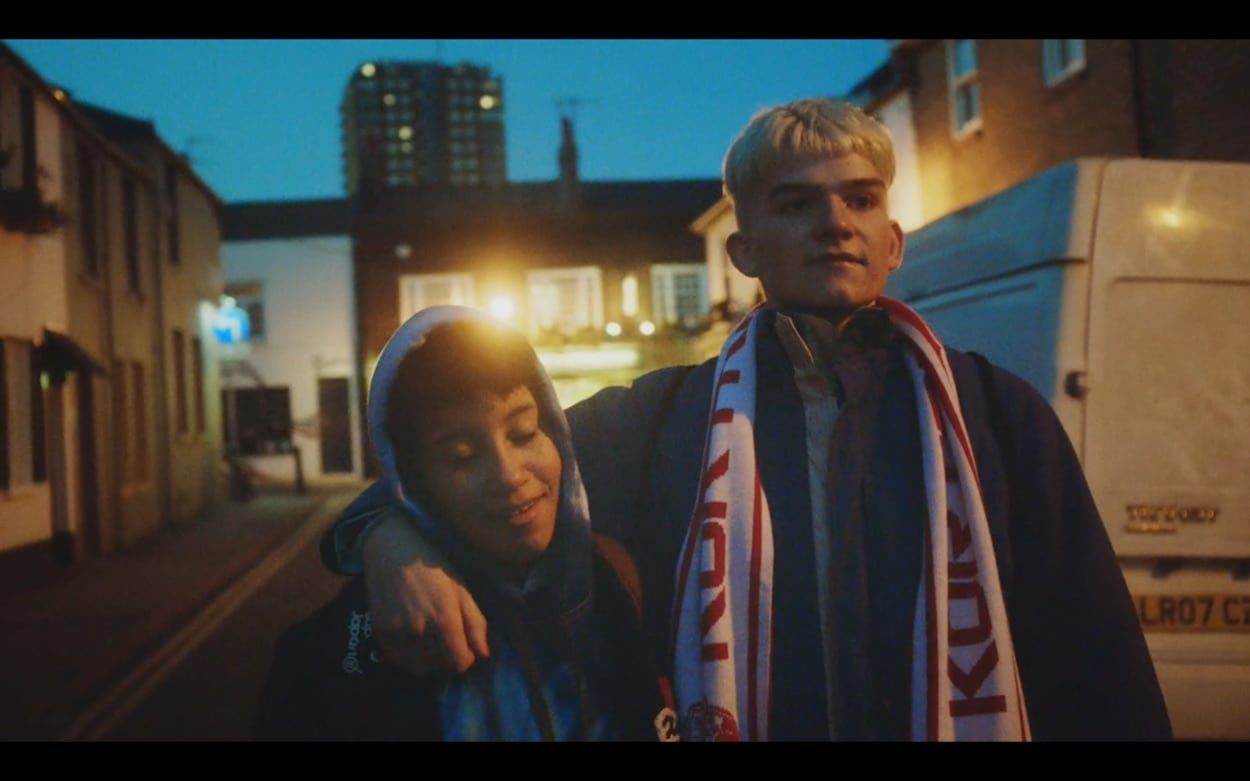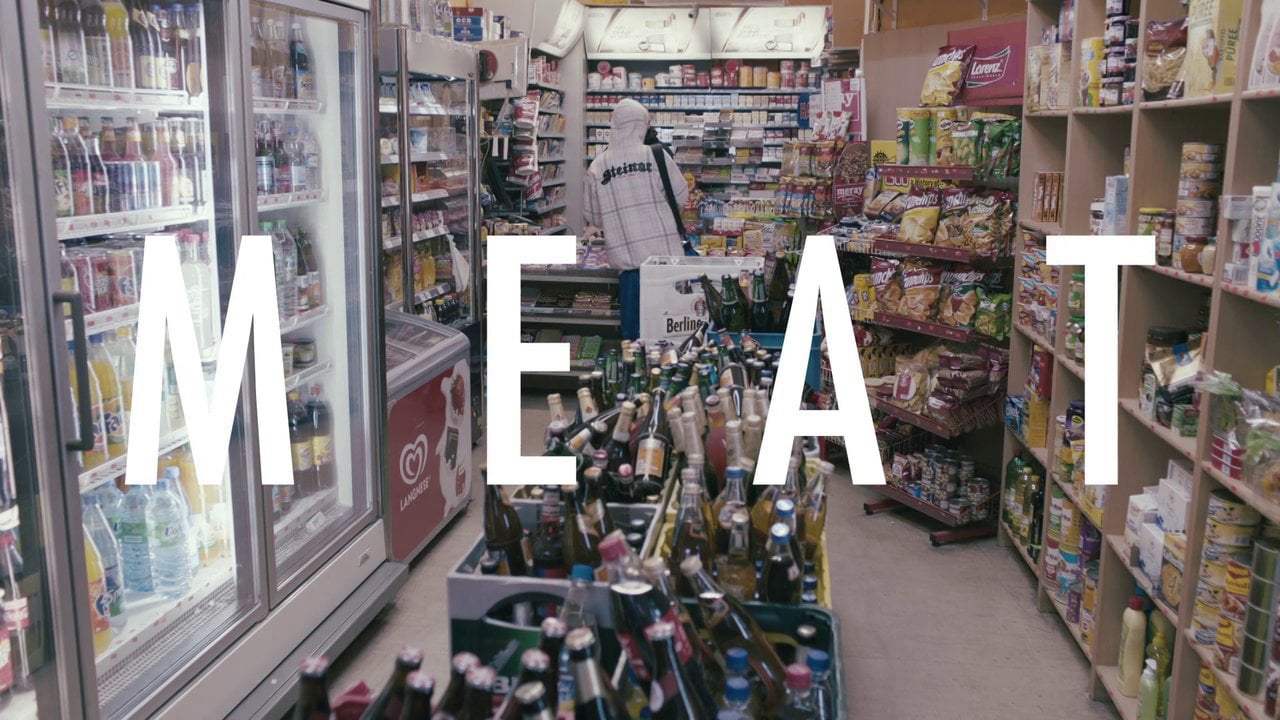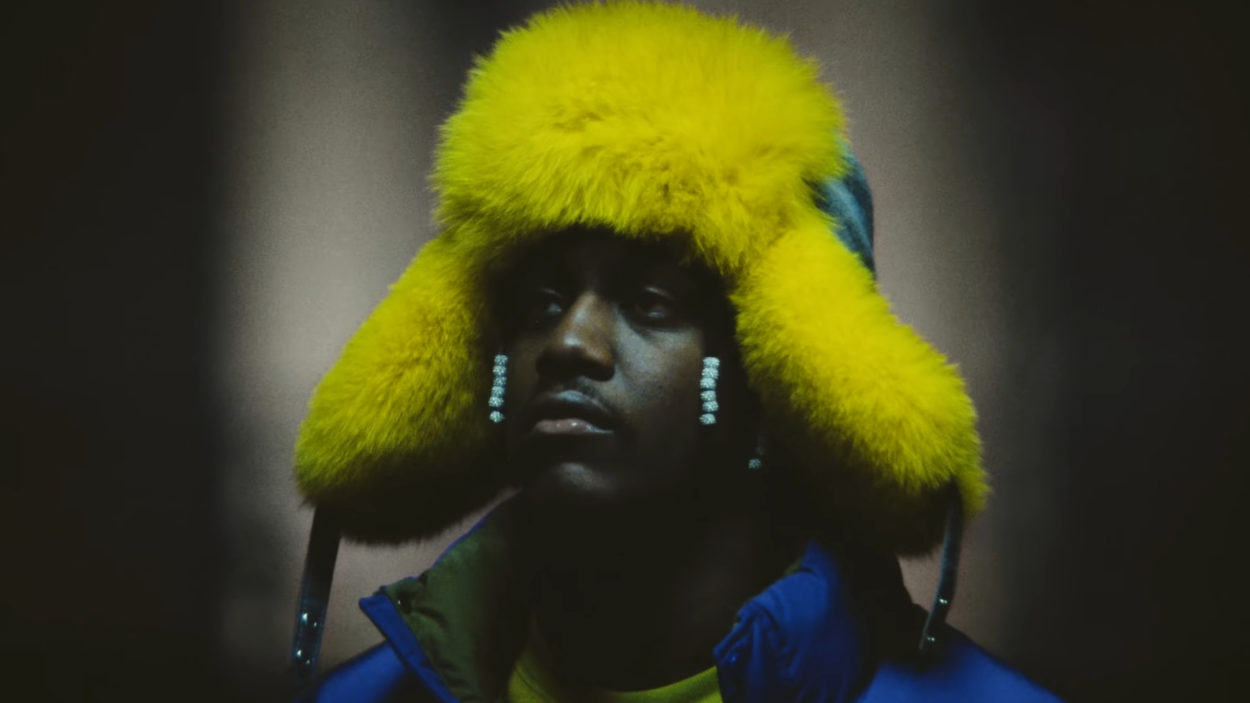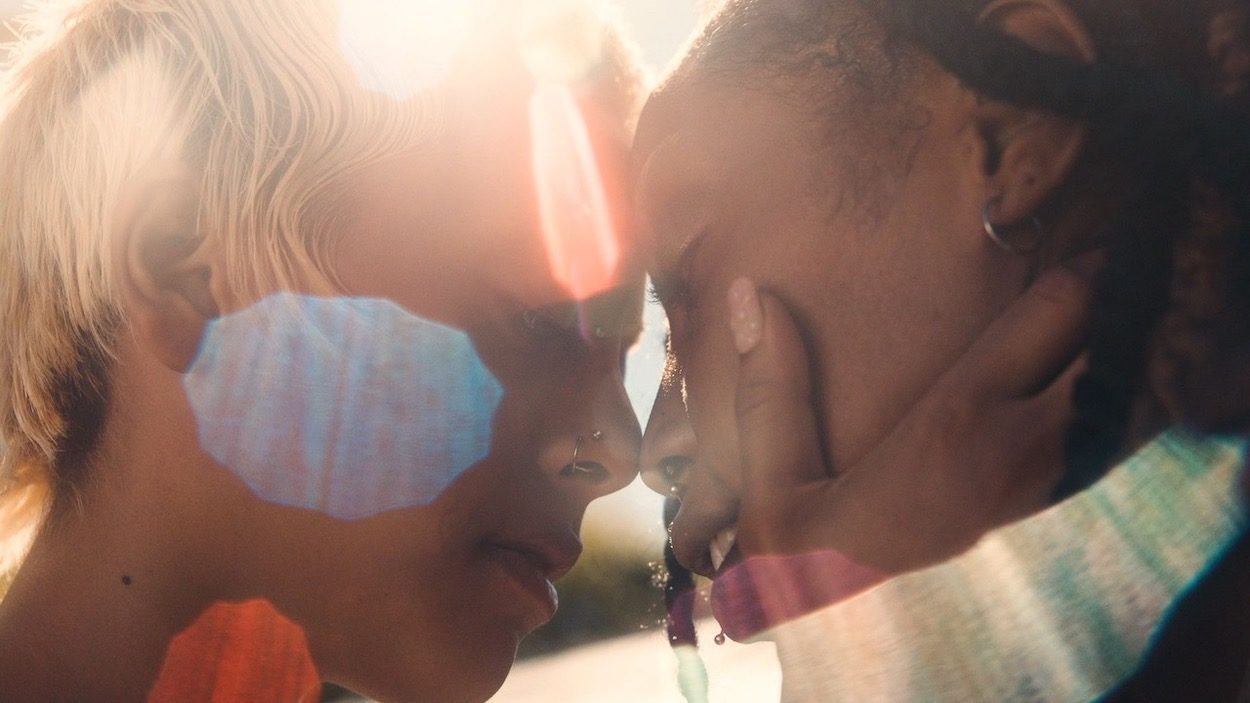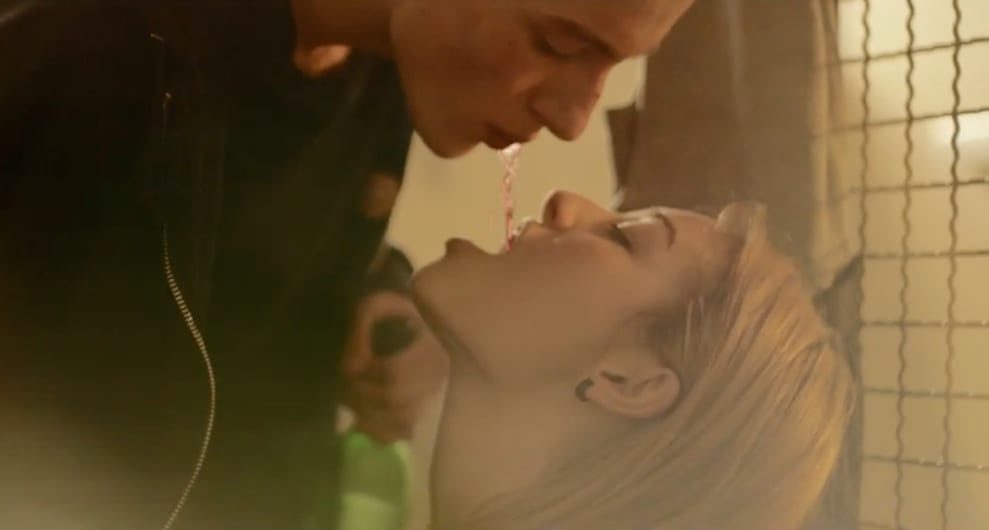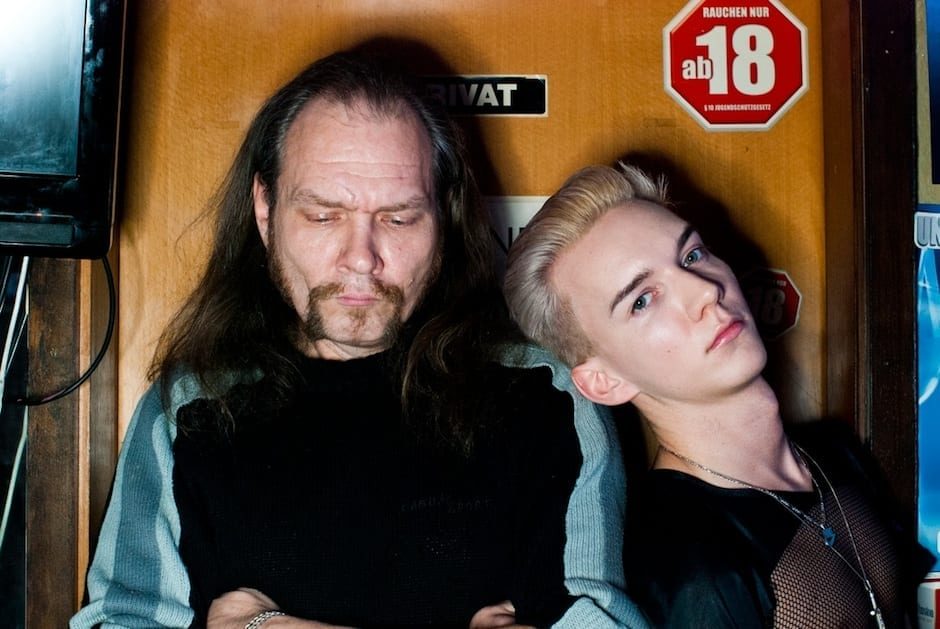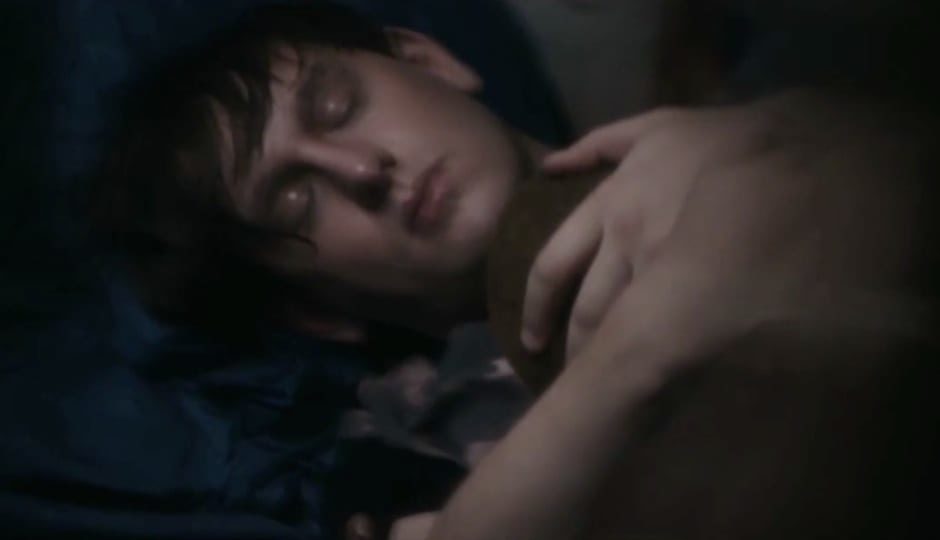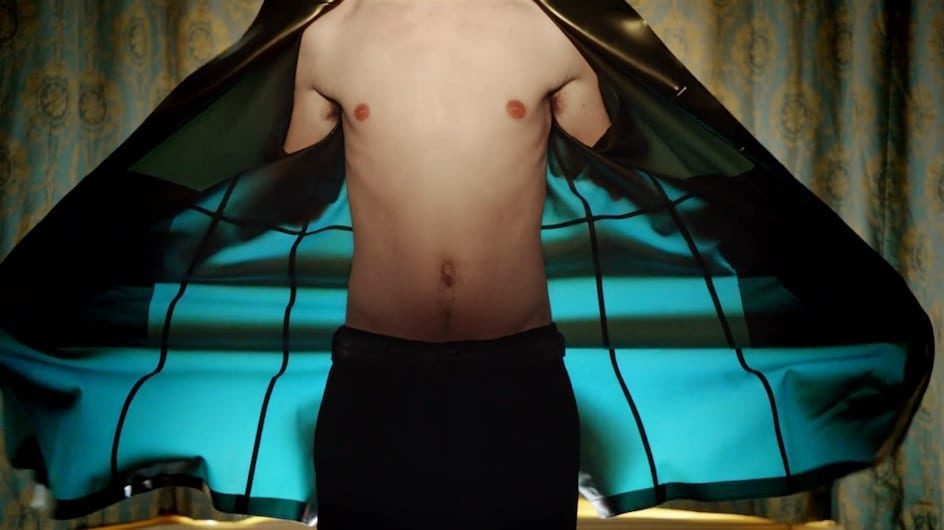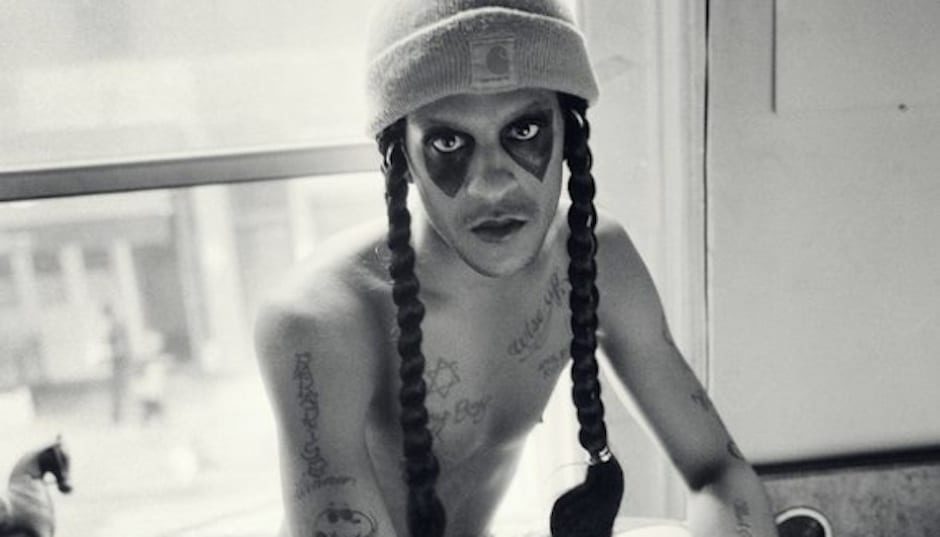You’re the Prince of LGBT filmmaking, and like most of your work this video for Declan McKenna focusses on youth, relationships, identity, sexuality and gender. How have the issues that you have felt compelled to film change over the last five years or so ?
The way young people exist, communicate and form identities parallel to digital spaces has changed dramatically over the past five years — which is around the time I moved to Berlin and began this body of work.
Virtual spaces have allowed communities within the LGBTQ spectrum to connect and grow which in return has allowed people to create safe and intuitive spaces to explore, define and refine their identities and interests. We are all constantly split between real and virtual worlds and this is something that I’m playing with lately in my filmmaking by combining snapchats, scripted and documentary moments into one fluid moment.
This theme is something I began exploring in film with my PROFILE series for Dazed and more recently (and abstractly) in films like MEAT and CELLAR DOOR which present the dangers of losing one’s self in a digital dystopia. The TV series I created last year (dates pending) also split the minds of our characters between Skypes, stylised day-dreams and candid documentary.
Lastly, I’ve also gotten to a point where just ‘cool’ videos don’t do much for me anymore. I’m constantly disappointed by the amount of filmmakers and image-makers in general who don’t use their craft and voice to actually say ‘something’.
There’s an inclusive collaborative feel to this film, Paracetamol. Please tell us how it came together – did it evolve as you filmed or was it carefully worked out beforehand?
The film began with an early conversation with Declan as well as the commissioner Laura Clayton. We were all on the same page early on and all agreed that these types of narratives were rarely done right. It was a rigorous casting process that began with my social media accounts, but in the end both parts were cast by Poppy, Juliette Larthe’s daughter. I had written a loose script, but left a lot of room to continue to develop collaboratively with the cast so they felt like the stories were ones they could connect to. Most of the situations were constructed, but many of the moments were very real. Sally Cooper and I then carved out more nuanced subtexts in the edit at Cut and Run.
Did you have a tight crew to capture the intimate feel?
This was actually my first production with Prettybird and I worked with an almost entirely new team. Authentic intimacy is one of the biggest themes in my work and this is as much about casting the right team as it is our cast. Our team was almost entirely female, which was something I really wanted for this project. The family vibes created by Gabi Norland (our DOP), our stylist (Tara St Hill) and producer Hannah Bellil trickled down to everyone on set. It was one of the most loving and empathetic teams I’ve worked with and this immediately created a such a trusting, safe space for our cast .
Are you still based in Berlin?
I am indeed, but trying to be back in London more lately.
Anything else you’d like to share?
I’ve just released my second book, called VITUM. It’s a collaboration with my husband and a follow up to last year’s KEIM.
I’m also really excited to release a new music video for Mykki Blanco featuring Woodkid next month as well as starting to write my first feature.
List a few inspirations that have connected with you recently:
Film: Victoria
People: Erika Lust, Juliana Huxtable
Music: Lotic
Books: Food Chain by Slava Mogutin
LINKS
